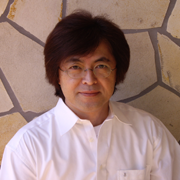Immunosuppressed Children and Young People, Psychosocial Wellbeing, and the COVID-19 Pandemic: a Prospective Cohort Study
Author(s): Corine Driessens, Lynne Mills, Ravin Patel, David Culliford, Diane Gbesemete, Emma Lee, Meera Shaunak, Harry Chappell, Saul N. Faust, Hans de Graaf, On behalf of the Immuno COVID19 study group (Appendix A)
Aim: This study aims to describe the psychosocial experiences of immunosuppressed CYP while Britain moved from the COVID-19 pandemic to epidemic.
Methods: We invited 1021 CYP participating in the ImmunoCOVID-19 study to complete a mental wellbeing survey in November/December 2021, January/February 2022, and March/April 2022, 467 accepted the invitation. At these 3 timepoints we assessed health-related-quality-of-life (HRQOL) and mood using the positive and negative affect scale. A linear mixed model repeated measure approach was used to analyse this prospective cohort data.
Results: In November/December 2021 and January/February 2022 the CYP reported HRQOL levels were noticeably lower compared to pre-COVID-19 norm levels. However, as the immunosuppressed CYP moved towards the COVID-19 epidemic (March/April 2022), HRQOL levels increased and negative mood decreased. Our findings confirmed early pandemic findings indicating that younger children’s positive mood and school functioning were less affected by the COVID-19 pandemic and that CYP’s mood, physical and school functioning and social support were more affected by the pandemic if they lived in low-income households. Moreover, parental anxiety and/or depression decreased CYP’s HRQOL and mood, except for psychological functioning and autonomy.
Conclusion: As Britain moved into the COVID-19 epidemic immunosuppressed CYP were slowly recovering from the psychosocial impact of the pandemic. More importantly, CYP’s psychosocial wellbeing was impacted by parental mental health, household income, and age regardless of the COVID-19 circumstances. Health and social care provided to immunosuppressed CYP should therefore include family guidance and interventions to support not only the psychosocial wellbeing of the paediatric patients but also parents.


 Impact Factor: * 3.5
Impact Factor: * 3.5 Acceptance Rate: 71.36%
Acceptance Rate: 71.36%  Time to first decision: 10.4 days
Time to first decision: 10.4 days  Time from article received to acceptance: 2-3 weeks
Time from article received to acceptance: 2-3 weeks 
